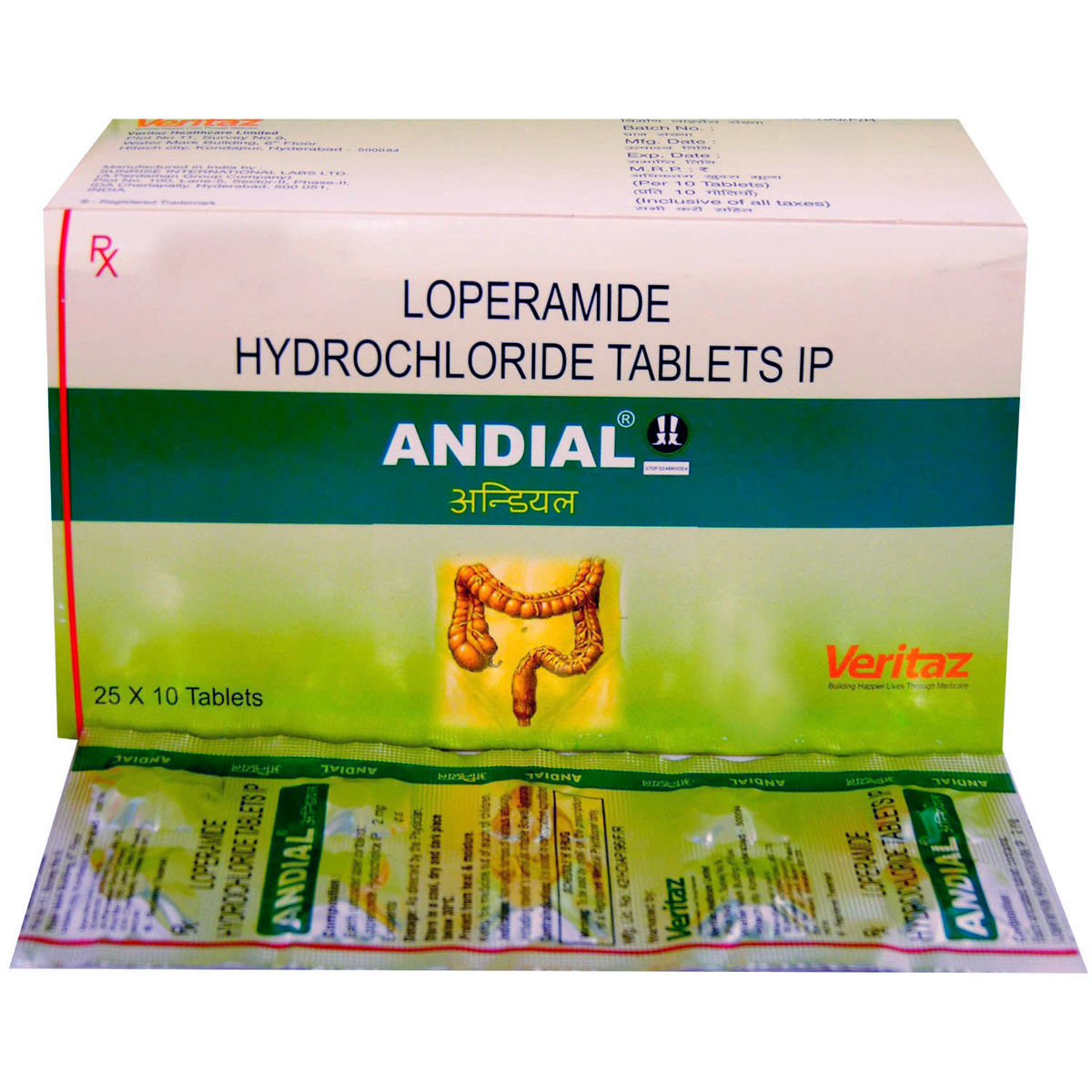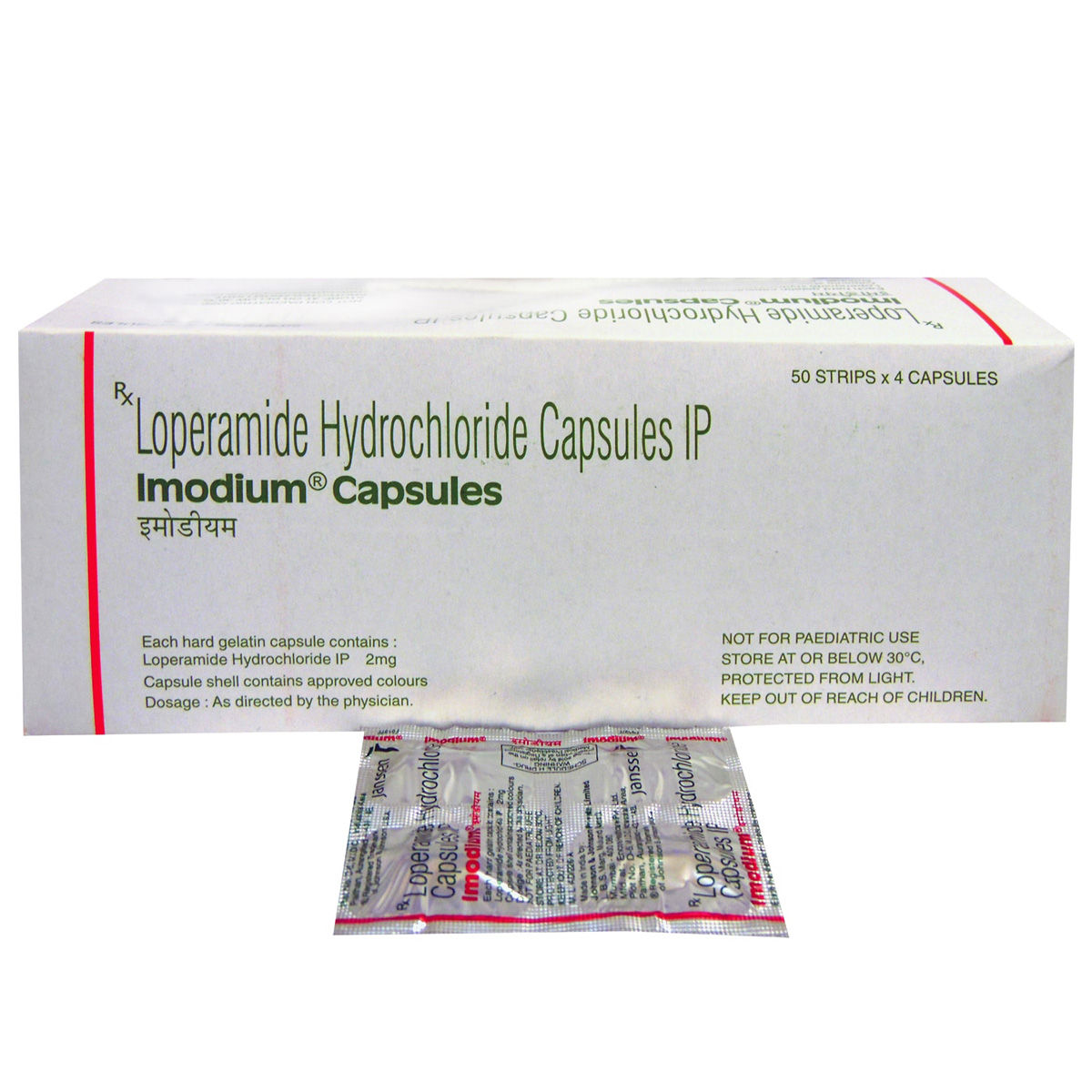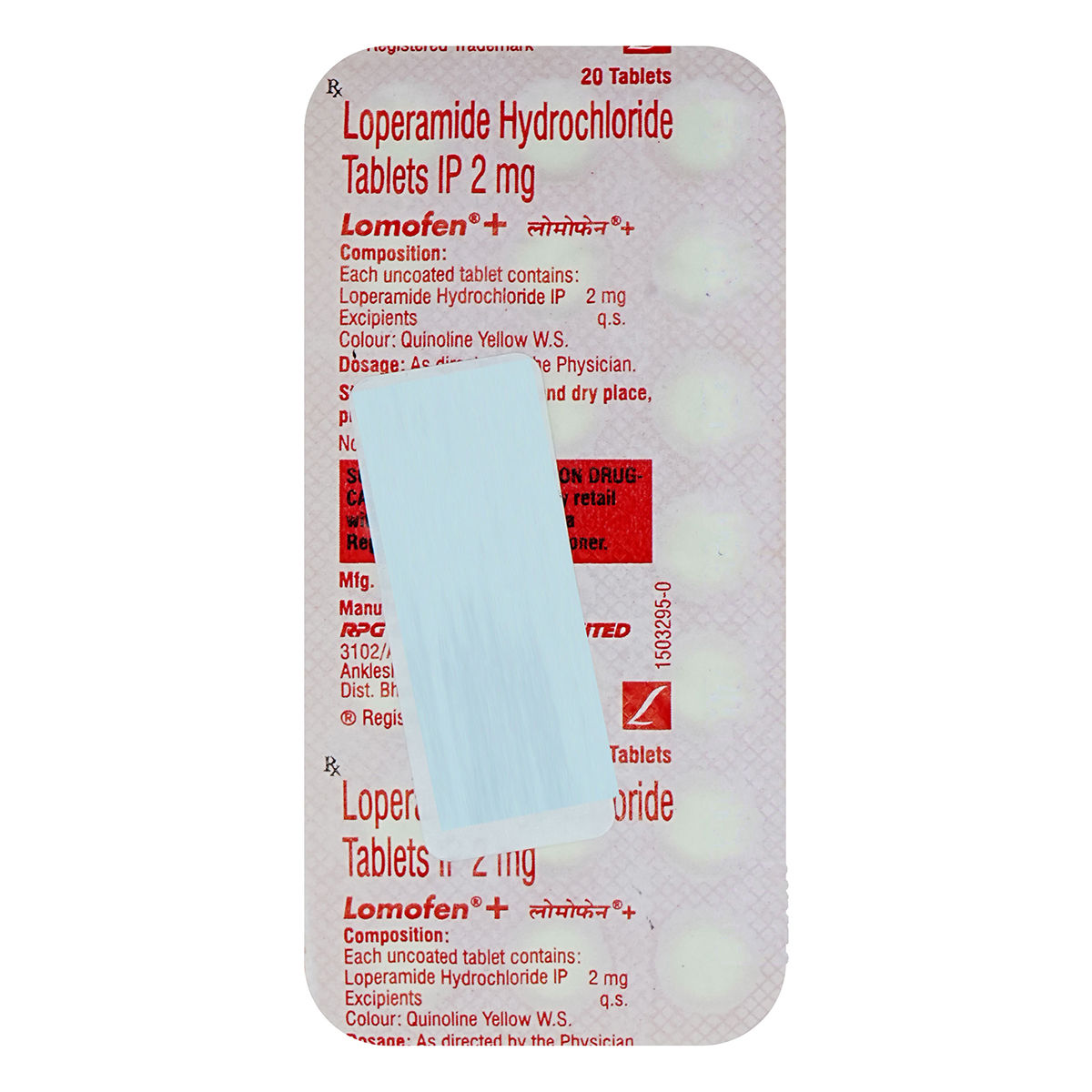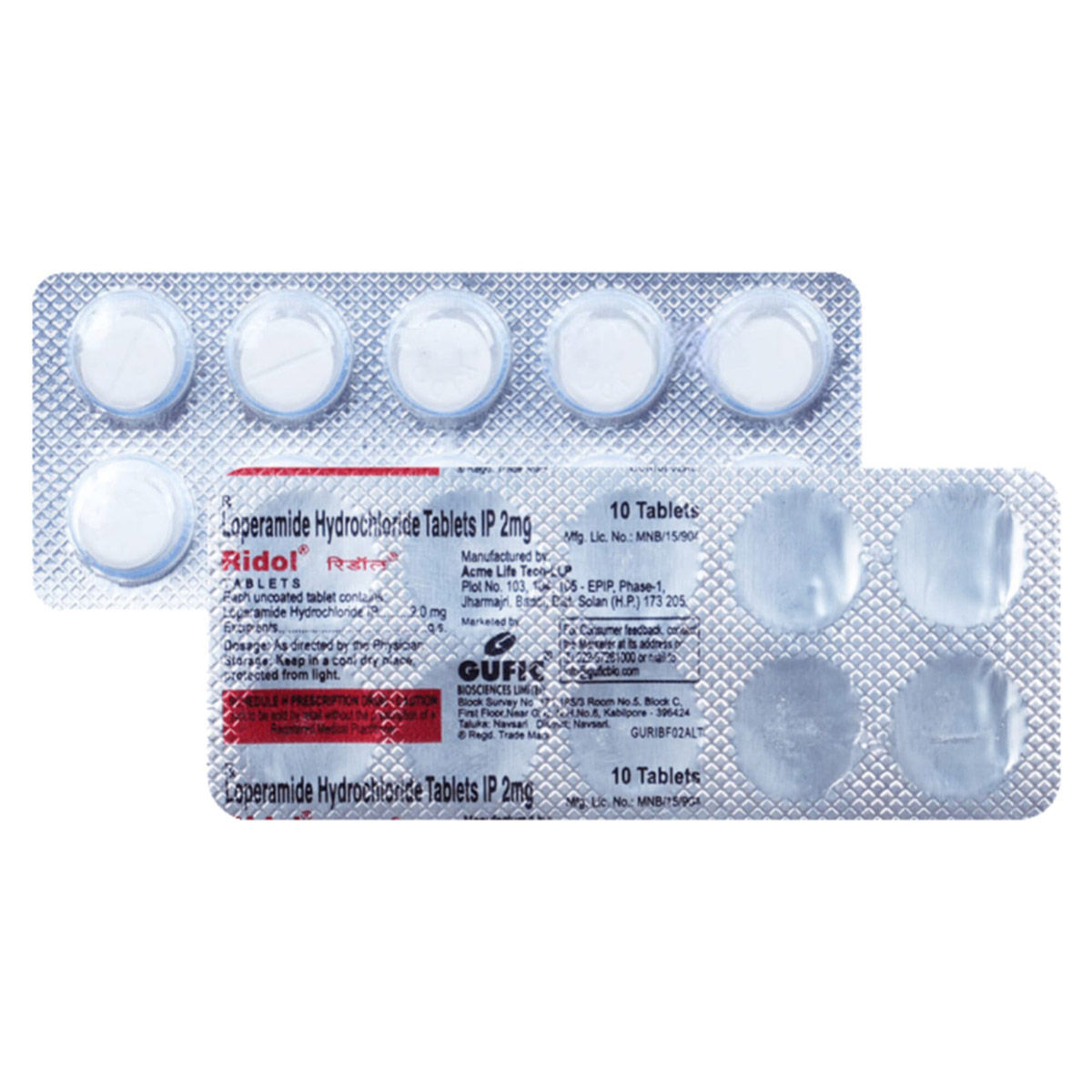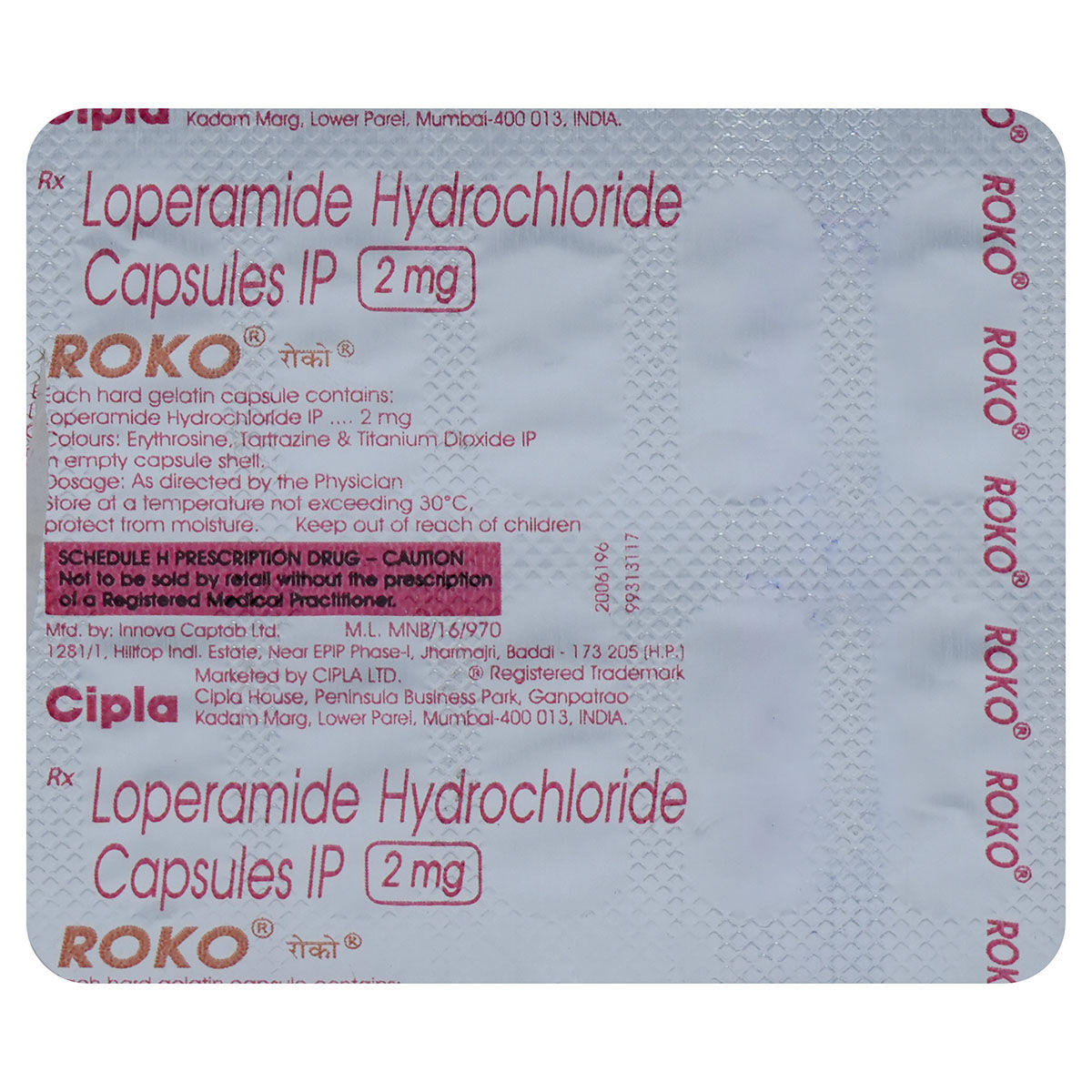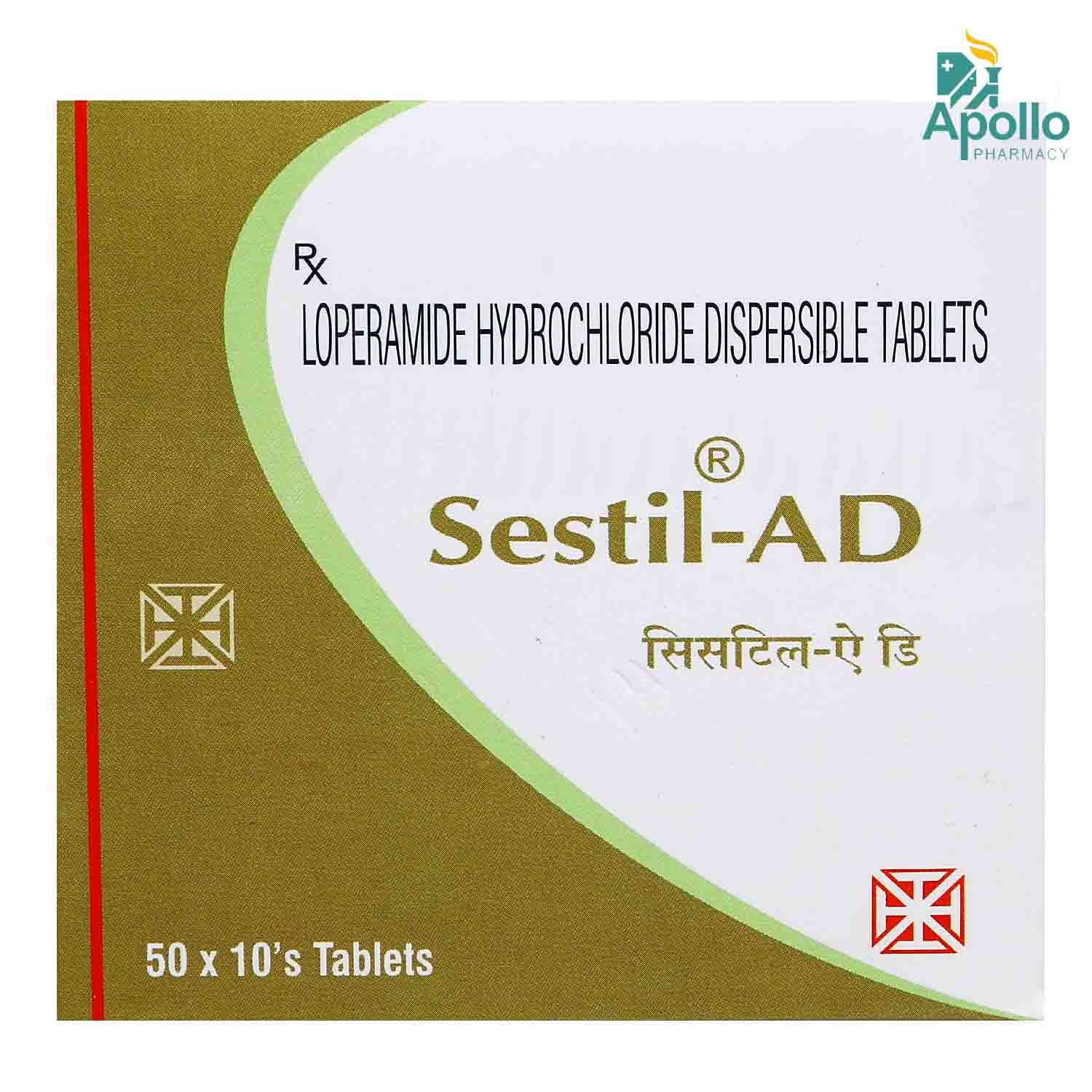Loperamide
About Loperamide
Loperamide is an anti-diarrheal medicine used to treat diarrhoea. It is also indicated in the treatment of diarrhoea associated with inflammatory bowel disease and in reducing the volume of discharge from ileostomies. Diarrhoea is a condition in which bowel movements are too frequent, leading to loose, watery stools.
Loperamide contains Loperamide, which works by slowing down an overactive bowel. This allows water and salts that are usually lost in diarrhoea to be absorbed by the body. Thereby, Loperamide helps treat diarrhoea.
The most common side effects of Loperamide are headache, nausea, and constipation. Most of these side effects do not require medical attention and gradually resolve over time. However, if the side effects persist or worsen, reach out to your doctor.
Do not take Loperamide if you are allergic to any of its components. Consult the doctor if you are pregnant or breastfeeding. Loperamide may cause dizziness; therefore, do not drive unless you are alert. Keep the doctor informed about your health conditions and medications to rule out any side effects/interactions.
Uses of Loperamide
Medicinal Benefits
Loperamide belongs to the class of anti-diarrheal medication used to treat diarrhoea. It is also indicated in the treatment of diarrhoea associated with inflammatory bowel disease and for reducing the volume of discharge from ileostomies. Loperamide contains Loperamide, which works by slowing down an overactive bowel. This allows water and salts that are usually lost in diarrhoea to be absorbed by the body. Thereby, Loperamide helps treat diarrhoea.
Directions for Use
Storage
Side Effects of Loperamide
- Constipation
- Vomiting
- Nausea
- Dizziness
- Abdominal pain (stomach pain)
Drug Warnings
Do not take Loperamide if you are allergic to any of its components, if you have severe diarrhoea after taking antibiotics, ulcerative colitis, constipation, or acute dysentery (blood in stools). Inform the doctor if you have AIDS and your stomach becomes swollen, liver or kidney disease, diarrhoea for more than 48 hours, severe diarrhoea, a history of drug abuse, slow or irregular heartbeat, low level of potassium in your blood, or prolonged QT interval (a rare heart problem). Seek immediate medical attention if you experience any of the following symptoms while taking loperamide: fast, irregular, or pounding heartbeat; dizziness; lightheadedness; unresponsiveness; or fainting. Avoid exceeding the recommended dosage, as it may lead to serious heart problems.
Drug Interactions
Drug-Drug Interaction: Inform the doctor if you are taking medicines used to treat HIV (ritonavir), abnormal heart rhythms (quinidine), excessive urination (desmopressin), fungal infections (itraconazole, ketoconazole), high cholesterol (gemfibrozil).
Drug-Food Interaction: No interactions found/established.
Drug-Disease Interaction: Inform the doctor if you have infectious diarrhoea or acute dysentery.
Drug-Drug Interactions Checker List:
Safety Advice

Alcohol
unsafeAvoid/limit alcohol consumption as it may increase the side effects of this medicine, such as dizziness and drowsiness.

Pregnancy
cautionLoperamide belongs to pregnancy category C. It should be used during pregnancy only if the benefits outweigh the risks. Please consult the doctor if you are pregnant.

Breast Feeding
unsafeSmall amounts of Loperamide may appear in human breast milk. Therefore, it is not recommended during breast-feeding.

Driving
cautionLoperamide may cause dizziness, tiredness or sleepiness. Avoid driving or operating machinery if you experience these symptoms.

Liver
consult your doctorNo data is available in patients with liver impairment. Please consult the doctor if you have liver problems or any concerns regarding this.

Kidney
consult your doctorNo data is available in patients with renal impairment. Please consult the doctor if you have kidney problems or any concerns regarding this.

Children
cautionLoperamide is contraindicated in children below 2 years due to the risk of heart and breathing problems. Please consult the doctor if you have any concerns regarding the usage of Loperamide in children.
Habit Forming
Diet & Lifestyle Advise
Drink plenty of fluids to stay hydrated.
Include bland foods such as bananas, rice, apples, cream of wheat, soda crackers, farina, applesauce, and toast to avoid the aggravation of the digestive system.
Avoid eating foods such as milk, dairy products, spicy foods, processed foods, pork, veal, sardines, raw vegetables, rhubarb, onions, corn, citrus fruits, alcohol, pineapples, cherries, seeded berries, grapes, caffeinated and carbonated drinks.
Eat fibre-rich food such as whole grains, lentils, beans, broccoli, and peas.
Wash your hands properly after using the toilet to prevent infections.
Clean the toilets regularly with a disinfectant.
Wash your hands thoroughly before eating, while preparing or serving.
Special Advise
- Drink plenty of fluids/water to replace lost fluids due to diarrhoea.
Patients Concern
Disease/Condition Glossary
Diarrhoea: Diarrhoea is a condition in which there is a frequent need to empty the bowels. It is characterised by loose and watery stools. Diarrhoea could be acute or chronic. Acute diarrhoea generally lasts for a few days. It could occur due to bacterial or viral infection or food poisoning. Chronic diarrhoea lasts for at least four weeks. It could occur due to intestinal disease/disorder such as Crohn’s or celiac disease. The causes of diarrhoea include food intolerance, food allergy, adverse reactions to medicine, viral infection, bacterial infection, intestinal disease, parasitic infection, and stomach or gallbladder surgery. The symptoms of diarrhoea include nausea, abdominal pain, cramps, dehydration, bloating, frequent urge to empty the bowels, and large or watery stools.
FAQs
Loperamide is used to treat diarrhoea. It is also indicated in the treatment of diarrhoea associated with inflammatory bowel disease and in reducing the volume of discharge from ileostomies.
Loperamide works by slowing down the movement of the bowel to decrease the number of bowel movements. It also helps lower the flow of fluids and electrolytes into the bowel.
Yes, diarrhoea may cause dehydration due to loss of fluid in stools. So, drink plenty of fluids/water to replace lost fluids due to diarrhoea. Talk to your doctor about rehydration therapy to replace lost salts.
Do not exceed the recommended dosage, as it may cause serious or life-threatening changes in your heart rhythm. Avoid taking a larger dose, taking it for a longer period of time, or taking it more often than prescribed by your doctor.
No, Loperamide is not an antibiotic. It contains loperamide, which is an anti-diarrheal medication. Loperamide works by slowing down an overactive bowel and allowing the body to absorb water and salts usually lost in diarrhoea.
The duration of taking Loperamide depends on the severity of your diarrhoea and your doctor's advice. Typically, it is taken for a short period or as directed by your doctor for chronic diarrhoea or inflammatory bowel disease. It's essential to follow your doctor's instructions and not exceed the recommended duration or dosage, as taking Loperamide for longer than prescribed can lead to dependence or other side effects.
The effect of a single dose of Loperamide typically lasts for 4 to 6 hours. However, this duration can vary depending on individual factors, such as the severity of diarrhoea, individual metabolism, and the presence of other medications or medical conditions. If symptoms persist or worsen, it's important to consult a healthcare provider for further guidance. Additionally, do not exceed the recommended dose or take Loperamide for longer than 2 days without medical advice.
Take Loperamide for up to 2 days to manage acute diarrhea. If symptoms persist or worsen, consult your healthcare provider. Do not take longer than recommended to avoid dependence and side effects.'
Do not take Loperamide with painkillers on your own. Only take it if recommended by your doctor. Combining medications without medical advice can be harmful. Always consult your healthcare provider before taking Loperamide with painkillers or any other medications.
You can take probiotics with Loperamide, but check with your doctor first. Probiotics can help with diarrhoea and restore gut bacteria. Taking them with Loperamide may make it work better and reduce side effects. However, consult your doctor to ensure safe and effective use, especially if you have a weakened immune system or take other medications.
Diarrhea is a common condition characterized by frequent bowel movements, loose or watery stools, and an urgent need to have a bowel movement. Various factors, including viral or bacterial infections, food intolerance or allergies, medications, digestive disorders, infections, and hormonal changes, can cause it. Suppose you experience persistent, severe, or bloody diarrhoea. In that case, seeking medical attention to determine the underlying cause and receive appropriate treatment is essential.
Take Loperamide when you have acute diarrhoea or irritable bowel syndrome (IBS) with frequent diarrhoea. However, only take it if your doctor recommends it, for a short period (up to 2 days), and if your symptoms are not severe. Also, do not take it if you have bloody stools, fever, or abdominal pain. Always follow the recommended dosage and consult your healthcare provider if symptoms persist or worsen.
A doctor should direct the dose of Loperamide for adults, as it may vary depending on individual circumstances and medical history. Your doctor may adjust the dose based on your specific needs and response to treatment. Always follow your doctor's instructions and consult with them if you have any questions or concerns.
Yes, Loperamide can be used to treat motions (diarrhea). It is an anti-diarrheal medication that works by slowing down bowel movements and increasing the absorption of water and electrolytes from the intestines. This helps to firm up stool and reduce the frequency of bowel movements. However, it's important to note that Loperamide should only be used under the guidance of a healthcare professional, especially if you have underlying medical conditions, are taking other medications, or are experiencing severe or persistent diarrhoea.
Loperamide typically starts to work within 1-2 hours after taking it. It may take up to 4-6 hours to reach its full effect. However, this may vary depending on individual factors, such as the severity of diarrhoea and individual metabolism.
Loperamide typically contains the active ingredient Loperamide Hydrochloride, an anti-diarrheal medication.
Loperamide containing Loperamide Hydrochloride is generally considered safe when used as directed. However, as with all medications, it may cause side effects and interact with other medicines. To ensure safe use, follow the recommended dosage, inform your doctor about your medical history, and monitor for side effects.
Loperamide can be used to treat diarrhoea and abdominal pain associated with Irritable Bowel Syndrome (IBS), but only under the guidance of a healthcare professional. While it can help manage symptoms, it's important to note that Loperamide may not address the underlying causes of IBS, and long-term use should be avoided. Your healthcare provider may also recommend other treatments or lifestyle changes to manage IBS symptoms.
Do not take Loperamide with any other medication, including antibiotics, paracetamol, ibuprofen, omeprazole, ciprofloxacin, desmopressin, ritonavir, quinidine, or cotrimoxazole, unless advised by your doctor. Always consult your healthcare provider before combining medications to ensure safe and effective treatment.
Loperamide can help with diarrhoea and stomach cramps during opiate withdrawal, but it's not a treatment for withdrawal itself. It can manage some symptoms, but it's important to remember that it doesn't address the underlying issues and shouldn't replace medically supervised treatment. Consult a healthcare professional for proper guidance and support during opiate withdrawal.
Loperamide carries a low risk of addiction when used as directed by a healthcare professional to treat diarrhoea. However, taking high doses or using it for extended periods can increase the risk of habit formation and addiction. Individuals with a history of substance abuse or addiction should exercise caution.
Loperamide can help alleviate diarrhoea caused by stomach flu, nausea, and some stomach cramps associated with diarrhoea. However, it's important to note that Loperamide is not recommended for bloody diarrhoea, fever, gas, or rotavirus infections. In fact, anti-diarrheal medications like Loperamide are not recommended for rotavirus infections. Always consult a healthcare professional for proper diagnosis and treatment.
Loperamide and cimetidine can be taken together. Cimetidine is an antacid and histamine-2 (H2) blocker that may not significantly interact with Loperamide. However, it's always best to consult your healthcare provider or pharmacist to ensure safe and effective treatment before taking any medications together.
Take Loperamide only as directed by your doctor, based on your individual medical needs and condition. Follow the recommended dosage and frequency, and do not exceed the maximum dose prescribed. Always consult your doctor if you have any questions or concerns.
Yes, you can take Loperamide for loose motion (diarrhoea). Loperamide is commonly used to treat diarrhoea and reduce the frequency of loose stools. However, it's essential to consult your doctor before taking Loperamide, especially if you have any of the following: bloody or watery diarrhoea, fever, abdominal pain or cramping, or underlying medical conditions like inflammatory bowel disease (IBD). Remember, Loperamide only treats symptoms, not the underlying cause of diarrhea. Your doctor will recommend the appropriate treatment based on your specific needs.
The most common side effects of Loperamide are headache, nausea, and constipation. Most of these side effects do not require medical attention and gradually resolve over time. However, if the side effects persist or worsen, reach out to your doctor.



